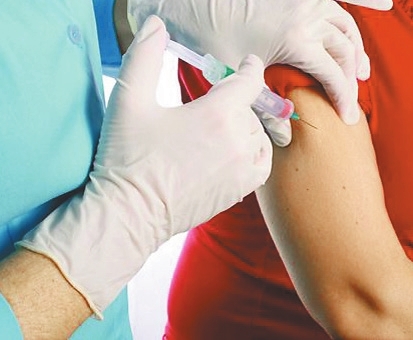
A LONGER interval between the two primary COVID-19 vaccine doses can generate up to nine times as many antibodies, according to new research being presented at the 2022 European Congress of Clinical Microbiology & Infectious Diseases. In addition, for those who previously contracted COVID-19, eight months after infection may be an optimal time to get vaccinated for antibody levels. “Timing between exposure and vaccination plays a critical role in post-vaccination antibody responses,” Ashley Otter, one of the authors and a researcher at the U.K. Health Security Agency, said in a statement. “However, further research is needed to determine whether these higher antibody levels provide greater protection against COVID-19 disease and how this longer dosing interval may affect booster responses,” Otter said. Researchers at the U.K. Health Security Agency measured antibody levels in blood samples from nearly 6,000 U.K. health care workers enrolled in the nation’s SIREN study (SARS-CoV-2 Infection and Reinfection and Evaluation). They received the Pfizer-BioNTech COVID-19 vaccines. About 4,000 participants had their first vaccine dose at least 21 days earlier, and about 2,000 had their second dose at least 14 days earlier. They were classified by infection history as either previously having COVID-19 or no previous infection. More than 99% of those who didn’t have a previous infection generated antibodies against the coronavirus. After the first dose, those with a previous infection had up to 10 times higher antibody levels than those who weren’t infected. After the second dose, those with a previous infection had antibody levels that were twice as high as those who weren’t infected. The researchers found that a longer dosing interval was associated with antibody levels that were up to nine times higher in participants who hadn’t been infected, particularly after 10 weeks. The effect was more pronounced among younger people. The dosing interval didn’t affect antibody levels in those with a previous infection. However, a longer interval between infection and vaccination was linked to higher antibody levels. For instance, those who had their first vaccine dose about eight months after infection had antibody levels that were seven times higher than among those who were vaccinated three months after infection. The level hit a plateau after eight months, which suggests that eight months after an infection may mark the optimal time to get vaccinated after an infection. Regardless of timing, all participants generated a high antibody response after the second dose, the researchers said. Women and those from an ethnic minority had significantly higher antibody titers, whereas immunosuppression was associated with significantly lower antibodies after vaccination. The research has been peer reviewed by the conference committee and is being discussed as part of an oral presentation at the conference, which was held April 23-26. (SD-Agencies) | 
